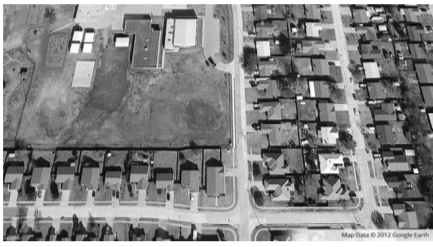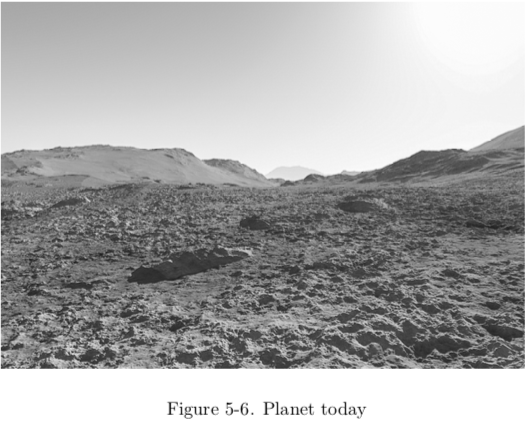Two Reasons Why a Bad Theory Remains Popular
by Granville Sewell March 2, 2021, 6:33 AM – for Evolution News
Section 5.1 appeared at Evolution News and Views (www.evolutionnews.org) September 2, 2014 (see also the video at http://www.youtube.com/watch?v=aJua-0FpmnI).
5.1 Why Evolution is Different
In the current debate between Darwinism and intelligent design, the strongest argument made by Darwinists is this: in every other field of science, naturalism has been spectacularly successful, why should evolutionary biology be so different? Even most scientists who doubt the Darwinist explanation for evolution are confident that science will eventually come up with a more plausible explanation. That’s the way science works, if one theory fails, we look for another one; why should evolution be so different? Many people believe that intelligent design advocates just don’t understand how science works, and are motivated entirely by religious beliefs.
Well, perhaps the following discussion will help critics of intelligent design to understand why evolution is different.
Here is a set of pictures of a neighborhood in Moore, Oklahoma. The first was taken before the May 20, 2013

Fortunately, another tornado hit Moore a few days later, and turned all this rubble back into houses and cars, as seen in the third picture below.

Figure 5-3. Moore after second tornado
If I asked you why you don’t believe my story about the second tornado, you might say this tornado seems to violate the more general statements of the second law of thermodynamics, such as “In an isolated system, the direction of spontaneous change is from order to disorder.”1 To this I could reply, Moore is not an isolated system, tornados receive their energy from the sun, so the decrease in entropy in Moore caused by the second tornado is easily compensated by increases outside this open system. Or I might argue that it is too hard to quantify the decrease in entropy caused by the second tornado, or I could say I simply don’t accept the more general statements of the second law, the second law of thermodynamics should only be applied to thermodynamics.
Nevertheless, suppose I further said, I have a scientific theory that explains how certain rare types of tornados, under just the right conditions, really can turn rubble into houses and cars. You doubt my theory? You haven’t even heard it yet!
Now I have three more pictures for you, and two more stories. The first picture shows a certain Earth-like planet in a certain solar system, as it looked about 4 billion years ago. The second shows a large city at the same location about 10,000 years ago. At its prime, this city had tall buildings full of intelligent beings, computers, TV sets and cell phones inside. It had libraries full of science texts and novels, and jet airplanes taking off and landing at its airport.


Scientists explain how civilization developed on this once-barren planet as follows: about 4 billion years ago a collection of atoms formed by pure chance that was able to duplicate itself, and these complex collections of atoms were able to preserve their complex structures and pass them along to their descendants, generation after generation. Over a long period of time, the accumulation of genetic accidents resulted in more and more elaborate collections of atoms, and eventually something called “intelligence” allowed some of these collections of atoms to design buildings and computers and TV sets, and write encyclopedias and science texts.
Sadly, a few years after the second picture was taken, this planet was hit by a massive solar flare from its sun, and all the intelligent beings died, their bodies decayed, and their cells decomposed into simple organic and inorganic compounds. Most of the buildings collapsed immediately into rubble, those that didn’t, crumbled eventually. Most of the computers and TV sets inside were smashed into scrap metal, even those that weren’t, gradually turned into piles of rust. Most of the books in the libraries burned up, the rest rotted over time, and you can see see the final result many years later in the third picture below.

Now it is the first story that is much more difficult to believe. The development of civilization on this planet, and the tornado that turned rubble into houses and cars, each seems to violate the more general statements of the second law, in a spectacular way. Various reasons why the development of civilization does not violate the second law have been given, but all of them can equally well be used to argue that the second tornado did not violate it either. That is, all except one: there is a theory as to how civilizations can develop on barren planets which is widely-accepted in the scientific world, while there is no widely-believed theory as to how tornados could turn rubble into houses and cars.
Well, maybe science will eventually come up with a plausible naturalistic explanation for evolution. But my question to those who treat evolution as just another scientific problem is this: do you really still believe that anyone who doubts that science can explain the development of life and of human intelligence in terms of a few unintelligent forces of physics alone simply does not understand how science works? Can you now at least understand why some of us feel that evolution is a fundamentally different and much more difficult problem than others solved by science, and requires a fundamentally different type of explanation?
My cmnt: Much more to come on this essay…
Leave a comment